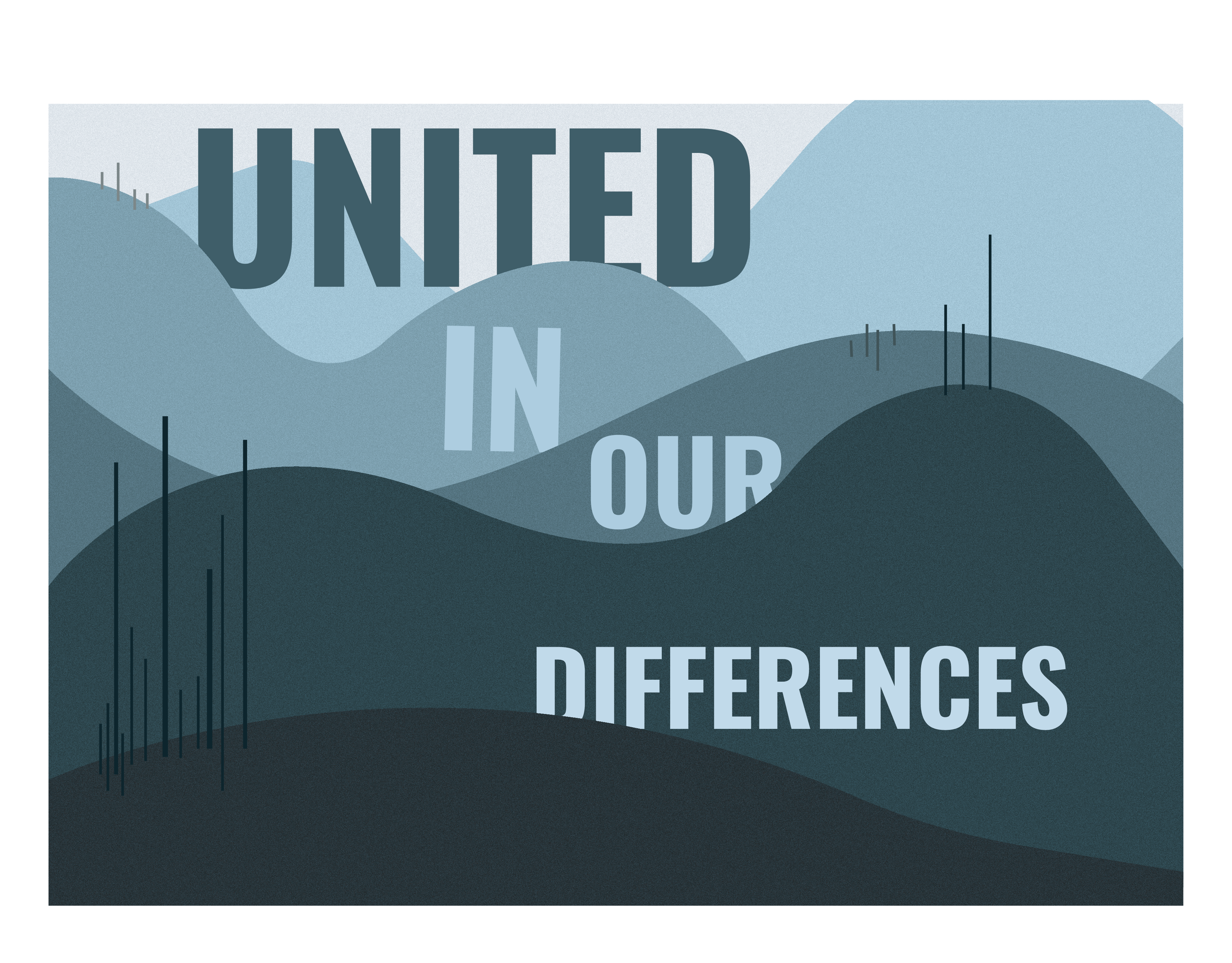[Written By: Megan Willis]
[Illustration: Julia Rosner]
Take a moment to picture a soldier in the British Army. What do you see?
It’s more than likely that what you see is a stereotype, a set identity of what and who a soldier is, an identity that has been produced and reinforced through our culture and history.
The word ‘identity’ has diverging definitions. It is perhaps most commonly understood as the characteristics that collectively make up an individual and serve to distinguish that person from others. Examples of these characteristics include, but are not limited to, gender, race, religion, politics and sexual orientation. Historically, individuals whose characteristics have diverged from what was conventionally expected in our society have faced prejudice, misunderstanding and exclusion. However, in recent years, there has been a growing sense of understanding and acceptance of the wide spectrum that identity can exist on.
The British Army is no exception to this wave of progress. On the 10th of January, during an interview on BBC Radio Four’s Today Program, General Sir Nick Carter talked about how this societal shift is forcing a change in the army’s recruitment strategy: “Our society is changing and I think it is entirely appropriate for us therefore to try and reach out to a much broader base to get the talent we need.”
This progress is evidenced by the recent launch of a new £1.6 million advertising campaign from Karmarama – ‘This is Belonging’ – which features both animated and live action content. The adverts, which have been broadcast across radio, television, and online, are voiced by serving soldiers, all of whom were initially hesitant about signing up to serve. Their hesitations stemmed from a fear of rejection – a fear that some aspect of their identity would be incompatible with Army ideology.
The new recruitment videos ask: Can I be gay in the Army? Will I have a respectful space to practice my faith? Will I, as a woman, be listened to? Can I, as a man, get emotional? The unanimous answer is ‘yes’. As a result, the campaign successfully begins to break down the army’s outdated public image, and reconstructs it into a more inclusive and diverse one that can resonate with a twenty-first century audience.
Despite its positive message, the new campaign has been met with a legion of criticism. Some traditionalists claim that the campaign sends out the wrong message, that it encourages applications from those that are too weak and too soft to successfully meet the demands of a military lifestyle. Others, including former British Army Commander, Colonel Richard Kemp, believe that the campaign is a failure because it misses out on an appeal to the Army’s core recruitment pool: straight, white, working class men.
The largest opposition comes from those accusing the new campaign of being too politically correct. Former UKIP leader, Nigel Farage, gave the following response to the new recruitment campaign: “I’m sorry if people aren’t up to it, in terms of their physique, in terms of their strength, in terms of their ability to shoot a rifle. I want the army to be as elitist as possible. I want to have a great army.”
These criticisms all succeed in missing the point. For one, the new campaign does not exclude the traditional demographic. Straight white working class men already know that they will be welcomed into the Army’s ranks. This new campaign simply builds on that base and branches out to groups who may question if they would be accepted.
Ethnic minorities are one such group, making up only 3% of Army personnel despite accounting for 14% of the British population – a figure which is projected to rise to as high as 30% by 2050. Even more disproportional are the numbers of women in service: women make up 51% of the British population but only 9% of the armed forces.
So, to those who criticise the campaign for reaching out to a broader base: This is not political correctness. This is a way of combating disproportional recruitment, of trying to reform the identity of the British Army and shed those damaging stereotypes that discourage the registration of strong and capable individuals.
As for Farage, I fail to see how his comments relate to the new campaign. The new campaign encourages individuals with aspects of their identity that are atypical of a traditional recruit to apply. Just because these individuals are not ‘traditional’ applicants does not make them any less strong, any less able to shoot a rifle, or any less qualified to join any branch of this country’s armed forces that they may wish to.
Yes, ‘identity’ can be defined as the characteristics that make a person an individual; but, as I’ve said, the word has diverging definitions. It can also be defined as the condition of unity, of collectively sharing a sense of oneness. In my opinion, these two levels of identity can coexist.
This coexistence is best illustrated in one new advert in particular: the picture shows a troop resting in the countryside as their fellow soldier, who appears to be a practising Muslim, performs a prayer. They wait in respectful silence, and when the prayer is finished and the man stands, he is met with brotherly pats on the back before the troop continue on their way.
This clip does not paint a portrait of weakness, or softness, but instead makes the definite point that respect is not burdensome. It shows clearly that a group of soldiers can be united in that very shared aspect of their identity, while also respecting and celebrating aspects of each other that are strikingly different.
Take a moment to picture a soldier in the British Army. What do you see now?

